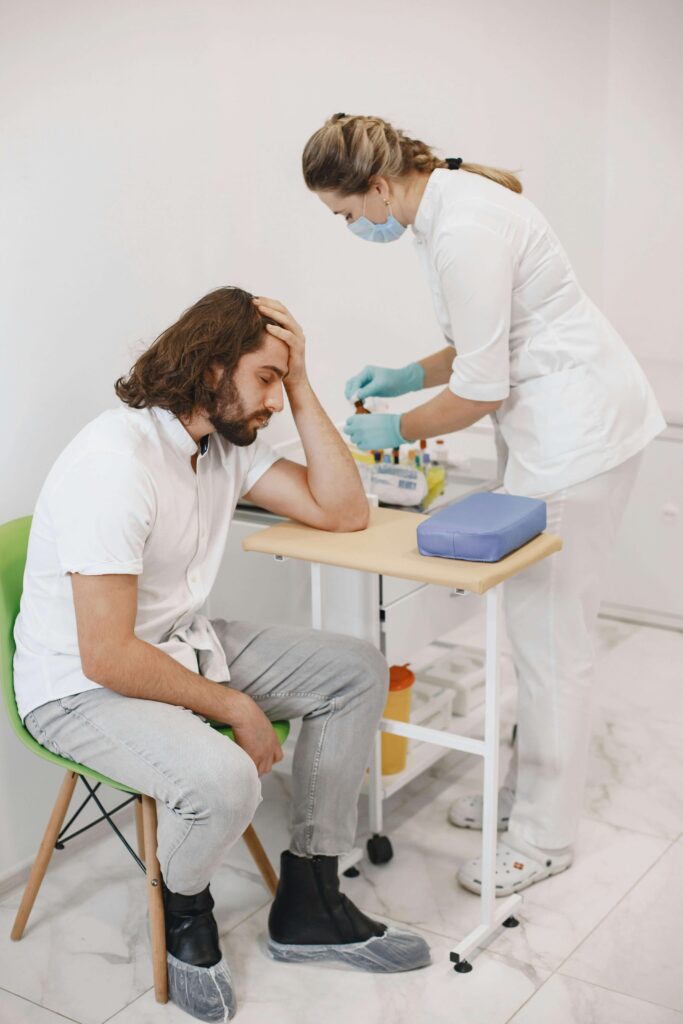Wellness Check
When was the last time you truly took a moment to check in with your health?
Not because something was wrong, but because you wanted to keep it right?
In our busy lives, we often visit doctors when symptoms arise.
But what if you could stay ahead of illness before it even begins?
Wellness is not just about treatment; however, it is about prevention.
Hence, a wellness check offers just that:
- A proactive way to stay healthy.
- Catch early signs before they become bigger issues.
Hence, that’s the power of a wellness check!
Moreover, It is a simple, proactive habit that could make all the difference.
Why Wellness Checks Matter More Than Ever

More than ever, the lifestyle of today’s time is more:
- Stressful
- Sedentary
- Digitally driven
These habits gradually affect both body and mind.
Moreover, at the expense of our physical and mental well-being, we juggle:
- Deadlines
- Screen time
- Convenience
Amid all this, regular wellness checks:
- Offer a lifeline, a chance to detect silent issues early.
- Maintain your health, not just react to illness.
In short, it is about staying one step ahead.
Therefore, think of it as a friendly reminder from your future self:
“Take care now, so you can keep thriving later.”
What Is a Wellness Check?
It is not a visit because you’re unwell. However, it is a routine conversation with your doctor to stay well with a comprehensive health assessment.
Therefore, keep doing it, not because you are sick, but because you want to stay well.
Hence, the goals include:
• Catch early warning signs. Tracking your current health.
• Monitor your current health status. Flagging any early warning signs
• Reassess your lifestyle choices. Guiding improvements in diet, sleep, and activity
• Ensuring you’re up to date on vaccines and screenings
These visits create a foundation for long-term health, especially when done consistently.
What’s Usually Included?
While details vary by age and health status, most wellness checks involve:
- Vital signs
Blood pressure, pulse, weight
- Blood work
Cholesterol, blood sugar, thyroid function, and vitamin levels
- Screenings
For cancer, diabetes, heart health, and mental well-being
- Lifestyle review
Diet, exercise, sleep, stress, substance use
- Preventive updates
Immunizations and age-appropriate screenings
Some doctors also discuss emotional health as more patients struggle with:
- Anxiety
- Burnout
- Low energy post-pandemic
Who Needs a Wellness Check and How Often?

- Young adults (18–39)
Every 2–3 years if healthy
- Middle-aged adults (40–64)
Every 1–2 years
- Seniors (65+)
At least once a year
The frequency depends on personal and family health history.
If it is chronic, then your doctor may recommend more frequent visits.
Why They’re Worth Your Time
- Early Detection Saves Lives
Many serious conditions, like:
- High blood pressure
- Diabetes
- Cancer develops quietly
Regular checks can uncover them early.
- Preventive Care = Cost Savings
Catching a health issue early usually means:
- Simpler treatment
- Fewer expenses
- Better Life Planning
Knowing your health status allows you to plan your:
- Life goals
- Travel
- Career
- Peace of Mind
Sometimes, just knowing you are okay is a relief worth having.
Everyday Life Examples
Busy professionals rely on wellness checks to stay in top physical and mental shape during stressful periods.
Parents use them to make sure their children’s development is on track.
Retirees benefit by staying independent and active with age-specific monitoring.
Hence, these checks are the health equivalent of servicing your car to avoid breakdowns.
How to Make the Appointment
- Come prepared
Jot down any small concerns you’ve had recently
- List your medications
Including vitamins & supplements
- Update your doctor
On family history, recent lifestyle changes, or new stressors
- Be open
Explore sleep issues, mood shifts, or fatigue
- Follow up
Don’t ignore test results or next steps; it’s your health on the line
FAQs
Is a wellness check the same as a physical exam?
Not exactly.
However, a physical is more about body systems.
Moreover, a wellness check is broader:
- Covering lifestyle
- Preventing care
- Boosting physical and emotional well-being
Does insurance cover these?
In many countries, yes.
U.S. plans under the Affordable Care Act typically include one annual wellness visit.
Can it be done online?
Some parts, like counseling/follow-ups, can happen over telehealth.
But tests and physical assessments need in-person visits.
Wellness Check: Conclusion and CTA
A wellness check is not just a medical visit. It is a form of self-care. It says,
“I care enough about my future to take care of myself today.”
It is a fact that no one has perfect health. However, the regular check-ins help you stay:
- Informed
- Empowered
- Control
Hence;
- Should not wait for pain or panic to drive you to the doctor.
- Do it for your peace of mind.
- Also, for the people who count on you.
- Practice it for you.
Join the Conversation
- Have you had a wellness check that changed how you think about health?
- What surprised you most?
- Share your experience in the comments.
- Your story could inspire someone else to take that first step.
Wellness Check: Blog Methodology
We prepared this article using:
- Trusted health sources like CDC, WHO, and NHS
- Experiences shared by patients and doctors in health forums
- Every day, concerns people raise in wellness communities
- A conversational tone to help connect, not just inform
Optimization Health: Unlocking Your Body’s Full Potential: Click Here







